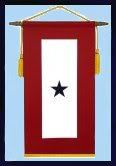The Vatican Astronomer

How cool is that. I'm not sure I even knew there WAS an official Vatican astronomer! Here he is talking about Creationism, how science and religion should be working together and how thanks to the literal 6 day Creationists there is a dichotomy.
Creationism dismissed as 'a kind of paganism' by Vatican's astronomer
I especially like this part-
"Religion needs science to keep it away from superstition and keep it close to reality, to protect it from creationism, which at the end of the day is a kind of paganism - it's turning God into a nature god. And science needs religion in order to have a conscience, to know that, just because something is possible, it may not be a good thing to do."



2 Comments:
What do you believe the word 'myth' means, anyway?
You've pointed out before that sometimes there's only a small step between traditional Christian beliefs (when they're not articulated very thoughtfully, and presented full of buzz-words), and "faith" that seems based on genie-in-a-bottle type reasoning: do this, appease this, get this, etc. Do you think that's what the article was getting at: that creationism, when taught without mentioning God, degenerated into nature mythology?
Do you think that true knowledge is dangerous?
I think that, if we have enough safeguards in place to know with enough certainty (to act on) that it's true, that there's nothing to fear from knowledge--that it won't overturn beliefs of faith (which are also true), and that it won't lead us directly to things we aren't supposed to know how to do. (There's a difference between knowing how to do something and doing it.)
Of course, the article brought up that enormous issue near the end. How does religion act as science's conscience?
Do you think that's what the article was getting at: that creationism, when taught without mentioning God, degenerated into nature mythology?
Well, you CAN'T teach a literal 6 day creation WITHOUT mentioning God. What that does though, is create the dichotomy that religion and science cannot co-exist.
Could God have created the world in 6 24-hour periods? Certainly. He could have done it in an instant too. Does my faith DEPEND on him having done so? Nope. In any case, pushing for creationism in the classroom has created this huge rift between religion and science and that's not good, for the reasons he describes.
Do you think that true knowledge is dangerous?
Absolutely! But that doesn't mean it's not worth having. Dangerous doesn't necessarily mean bad. With true knowledge, you then have the responsibilty to ACT on what you know. Sort of like Aslan isn't a tame lion (meaning he's dangerous) but he IS good, and teh children certainly want to know him better.
I don't WANT only safe knowledge. I want to live on the edge, looking out into the vastness of creation, seeking.
We shouldn't fear knowledge, but we also shouldn't take it for granted that it's going to be safe.
Of course, the article brought up that enormous issue near the end. How does religion act as science's conscience?
You answered this in your previous paragraph. There's a difference between knowing how to do something and doing it. Without relgion as teh conscience for science, then there is NOTHING that is out of bounds.
This is WHY we have debates on embryonic stem cell research, end of life issues, abortion, genetic selection of embryoes, cloning, and the list goes on. Just because science CAN do something, doesn't mean it SHOULD, and relgion is the moral force that says, "this is wrong".
Post a Comment
<< Home